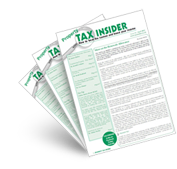What can I expect to pay in CGT?
Question
I purchased a house in 2003 (£88,000) shortly before leaving to work abroad as a charity worker (VSO volunteer - so received an allowance, not a wage). I returned to the UK in 2010. I did not have time to sell my main residence and therefore rented the newly-acquired house. A relative lived in the house for a year. I am now selling at £159,000 and completion will be May/June 2014. I am a basic rate taxpayer. What can I expect to pay in CGT? Arthur Weller replies: The important question is whether the house became your principal private residence (PPR) when you lived in it for a short period in 2003. From what I can understand, you didn't live in it when you came back to the UK. On the assumption that it did not become your PPR, you are making a capital gain of (£159,000 – £88,000) = £71,000. You have an annual exemption of £11,000 so must pay tax on a gain of £60,000. This £60,000 is considered the highest part of your income, so any part of the £60,000 that falls below the higher rate threshold (£31,865) is taxed at 18%, and any that falls above is taxed at 28%. If the house did become your PPR, then additionally you have PPR relief for the time you actually lived in it in 2003, PPR relief for the last 18 months of ownership, and a letting exemption for the period the house was let out commercially. There is an old Extra Statutory Concession (ESC D4) that may be relevant to you, but is beyond the scope of this column. |

To enrol in the 7 tax saving strategies email course complete the form below. The first module will be emailed to you immediately.

 UK Property Tax Q&A
UK Property Tax Q&A
